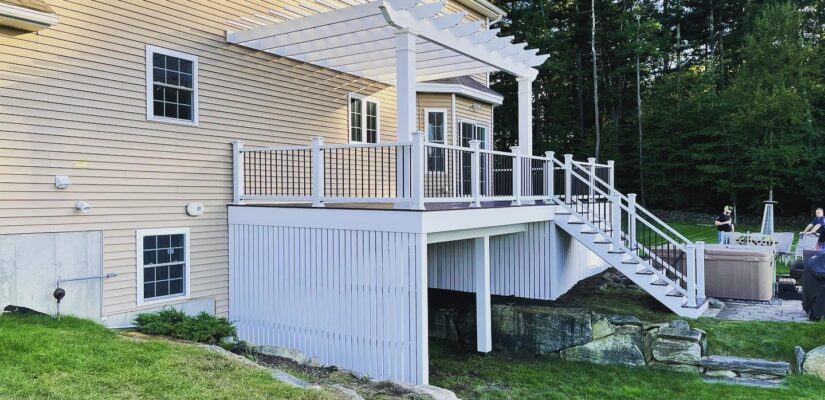Composite decking has gained immense popularity in recent years, touted for its durability, low maintenance requirements, and aesthetic appeal. But like any building material, it comes with its own set of advantages and disadvantages. If you’re considering composite decking for your next outdoor project, it’s essential to weigh the pros and cons to make an informed decision.
Durability: One of the primary reasons homeowners opt for composite decking is its exceptional durability. Made from a blend of wood fibers and recycled plastic, composite boards are resistant to rot, decay, and insect damage. They won’t splinter, crack, or warp like traditional wood decking, making them ideal for areas with high moisture or fluctuating temperatures.
Low Maintenance: Unlike wood decking, which requires regular sealing, staining, and sanding to maintain its appearance, composite decking is virtually maintenance-free. A simple periodic cleaning with soap and water is usually all that’s needed to keep composite boards looking pristine year after year. This saves homeowners both time and money in the long run.
Aesthetic Versatility: Composite decking comes in a wide range of colors, textures, and finishes, allowing homeowners to achieve the look they desire for their outdoor space. Whether you prefer the natural appearance of wood or a more contemporary vibe, there’s a composite option to suit your style.

Cost: While the initial cost of composite decking may be higher than that of traditional wood decking, many homeowners find that the long-term savings on maintenance outweigh the upfront investment. However, it’s essential to factor in your budget and project requirements when considering composite decking.
Heat Retention: One drawback of composite decking is its tendency to retain heat, especially in direct sunlight. This can make the surface uncomfortable to walk on barefoot during hot summer days. To mitigate this issue, consider selecting lighter-colored composite boards or installing shade structures over your deck.
Sustainability Concerns: Although composite decking contains recycled materials, some environmentalists raise concerns about its overall sustainability. The manufacturing process requires energy and produces greenhouse gas emissions, and disposing of composite boards at the end of their lifespan can be challenging. However, advancements in recycling technologies are making composite decking more eco-friendly over time.
In conclusion, composite decking offers numerous benefits, including durability, low maintenance, and aesthetic versatility. However, it’s essential to consider factors such as cost, heat retention, and sustainability concerns before making a decision. By weighing the pros and cons, you can determine whether composite decking is the right choice for your outdoor project.
Well I sincerely liked reading it. This post offered by you is very useful for accurate planning.